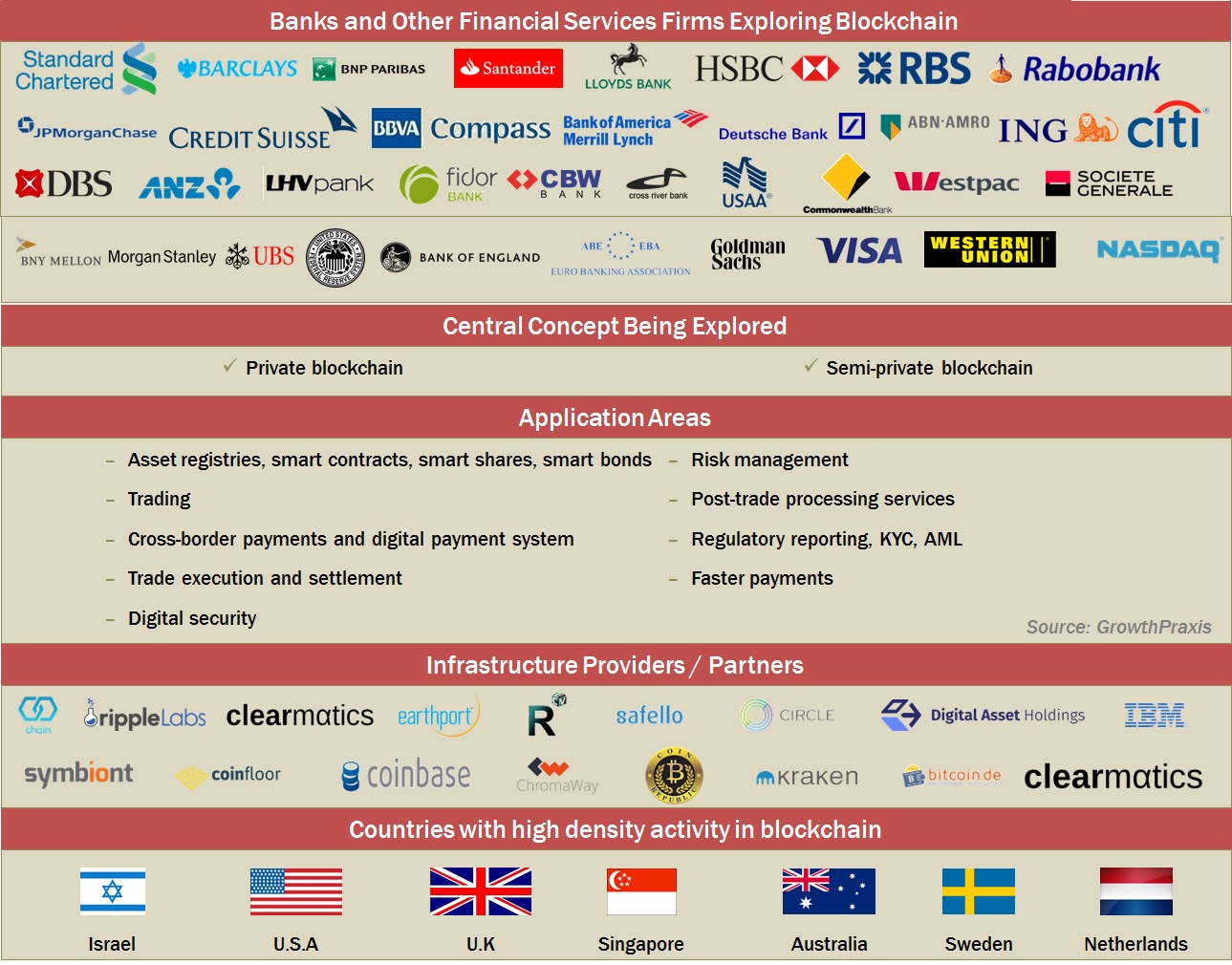If you’re wondering why there is so much buzz around blockchain and what the banks are doing with it, then you’re reading the right article. The financial services industry is at the cusp of a major transformation, and the aim is to enable transparent, secure, and efficient financial services at a lower cost. It's important to note that apart from startups, many banks have been exploring blockchain in some way or the other. They have set up teams, are doing experiments, investing time and money, and don't want to be left behind.
Banks are looking at utilizing the ledger system to enhance the current processes of various financial services. The original concept of the bitcoin blockchain has been to enable a public blockchain to solve the issue of dependence on a central system. However, financial services firms are now looking at a different approach wherein they could use a private blockchain or a semi-public blockchain.
Here’s a comprehensive overview of all the initiatives and experiments in this space in the form of an infographic.

There’s a total of 26 different banks that have either partnered with or expressed interest in exploring blockchain: JP Morgan, Citibank, Barclays, Credit Suisse, BBVA, Santander, Lloyds, BNP Paribas, Bank of America Merrill Lynch, HSBC, Deutsche Bank, RBS, Rabobank, ABN Amro Bank, ING Bank, Westpac, Commonwealth Bank, ANZ Bank, DBS Bank, Societe Generale, Standard Chartered, LHV Bank, Fidor Bank, CBW Bank, Cross River Bank, and USAA Bank.
Apart from banks, the other financial services firms that have expressed interest are the US Federal Reserve, Bank of England, Euro Banking Association, BNY Mellon, Goldman Sachs, UBS, NASDAQ, Visa, Morgan Stanley, and Western Union.
Here are the different blockchain startups involved: Ripple Labs, Earthport, GetGems, Everledger, R3CEV, Circle, Safello, Digital Asset Holdings, Symbiont, Coinfloor, Coinbase, Chromaway, Coin Republic, Clearmatics, Kraken, and Bitcoin.de.
The concepts that are being explored are asset registries, smart contracts, smart shares, smart bonds, trading, cross-border payments & digital payment system, trade execution & settlement, digital security, risk management, post-trade processing services, regulatory reporting, KYC, AML, and faster payments.
To learn more about Prove’s Identity solutions and how to accelerate revenue while mitigating fraud, schedule a demo today.

Keep reading

Prove is among the industry leaders who have helped launch the FICO Marketplace, a digital hub designed to connect organizations with leading data and analytics providers.

Explore the future of secure logins with passwordless authentication. Learn about its key benefits for businesses and users, plus actionable strategies to effectively implement it within your security framework.

Demystify the complexities of global identity verification and compliance across regions like GDPR, CCPA, and PSD2. Learn how to navigate varying international regulations and discover how phone-centric solutions from Prove streamline onboarding, reduce risk, and ensure scalable compliance worldwide.














